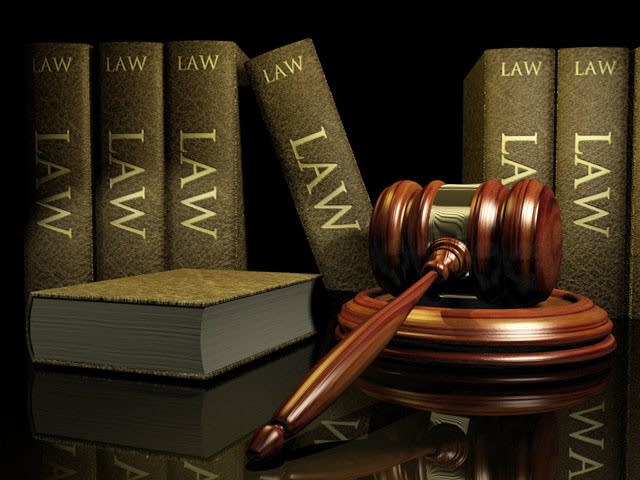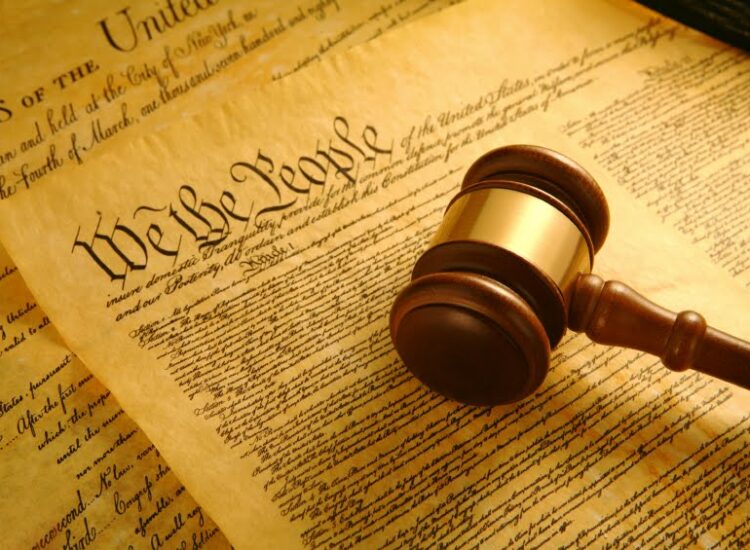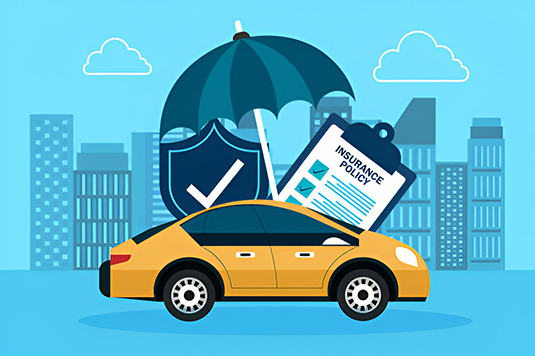Have you recently faced an accident in Dallas, Texas, and are now in search of the best Dallas personal injury lawyer? Navigating the complexities of the legal system can be overwhelming, especially when you are dealing with the aftermath of an injury. Securing the right attorney is essential for obtaining the compensation you deserve, and this guide will help you understand your rights and how to find a reputable personal injury lawyer. From the types of damages you may be eligible for to the overall process of filing a lawsuit, this article will equip you with the information you need to make informed decisions in your pursuit of justice.
Toc
- 1. Understanding Your Legal Rights After an Accident
- 2. The Pros and Cons of Hiring a Personal Injury Lawyer
- 3. Types of Compensation You Can Seek
- 4. The Process of Filing a Personal Injury Lawsuit
- 5. Related articles 01:
- 6. How to Choose the Right Personal Injury Lawyer in Dallas
- 7. Related articles 02:
- 8. Current Trends in Personal Injury Law
- 9. Spotlight on Notable Personal Injury Lawyers in Texas
- 10. Frequently Asked Questions About Personal Injury Cases in Dallas
- 11. Conclusion
Understanding Your Legal Rights After an Accident
When you suffer an injury due to someone else’s negligence, it’s crucial to understand the legal framework that governs personal injury cases in Texas. Personal injury law is centered around the concept of negligence, which can be defined by four key elements: duty, breach, causation, and damages. In simple terms, you must demonstrate that the other party had a legal duty to act in a certain way, that they breached this duty, that their actions directly caused your injuries, and that you suffered damages as a result.
In Texas courts, the plaintiff bears the burden of proving each element of negligence by a preponderance of the evidence, meaning it is more likely than not that the defendant’s actions caused the plaintiff’s injuries. This legal standard emphasizes the importance of gathering sufficient evidence to support your claim.
In Texas, there is a statute of limitations that allows you two years from the date of your injury to file a personal injury claim. If you fail to do so within this time frame, you may lose your right to seek compensation. Additionally, Texas follows a principle known as proportionate responsibility, which means that if you are found to be partially at fault for the accident, your compensation could be reduced based on your percentage of fault.
The Pros and Cons of Hiring a Personal Injury Lawyer

When considering whether to hire a personal injury lawyer, it’s essential to weigh the advantages and disadvantages:
Pros:
- Expertise: A skilled attorney will have in-depth knowledge of personal injury law and can help navigate complex legal procedures.
- Better Outcomes: Statistics show that individuals represented by attorneys often receive higher settlements than those who attempt to go through the process alone. However, some individuals successfully navigate personal injury claims without an attorney, particularly in less complex cases with straightforward liability and minimal damages. The decision to hire an attorney should be based on the specific circumstances of the case.
- Negotiation Skills: Lawyers are experienced negotiators who can effectively deal with insurance companies on your behalf.
- Resource Access: Attorneys have access to expert witnesses and resources that can bolster your case.
Cons:
- Contingency Fees: Lawyers typically work on a contingency fee basis, meaning they take a percentage of your settlement, which can reduce your overall compensation.
- Time-Consuming: Legal processes can be lengthy and may prolong the time before you receive compensation.
Types of Compensation You Can Seek
In personal injury cases, victims may be entitled to various forms of compensation, categorized into economic and non-economic damages.
Economic Damages
Economic damages are quantifiable losses that can include:
- Medical Bills: All expenses related to treatment for your injuries, including hospital stays, surgeries, medication, and rehabilitation.
- Lost Wages: Compensation for income lost due to time off work during recovery. For instance, if a construction worker earning $60,000 annually is unable to work for six months due to injuries sustained in an accident, their lost wages could be calculated as $30,000 (60,000/12 months * 6 months).
- Future Lost Earnings: If your injuries prevent you from returning to work or limit your earning capacity, you may claim future lost wages.
- Property Damage: This includes repairs or replacement costs for any damaged property, such as your vehicle.
Non-Economic Damages
Non-economic damages are more subjective and may encompass:
- Pain and Suffering: Compensation for the physical pain and emotional distress resulting from your injuries. Non-economic damages are often difficult to quantify and are subject to higher levels of negotiation and dispute.
- Loss of Consortium: If your injuries impact your relationship with your spouse, you may be entitled to compensation for loss of companionship.
- Emotional Distress: Awards for anxiety, depression, or other mental health issues caused by the accident.
Punitive Damages
In cases involving gross negligence or intentional misconduct, punitive damages may be awarded to punish the wrongdoer and deter similar behavior in the future.
Statistics and Examples
The average settlement amount in Dallas personal injury cases varies greatly, depending on the unique circumstances of each case. Recent studies indicate that average settlements can range from $15,000 to over $100,000, influenced by factors such as the severity of the injuries and the degree of negligence involved.
One compelling example of non-economic damages can be seen in a case where a victim suffered severe emotional distress due to a car accident caused by a drunk driver. This individual was awarded substantial damages for pain and suffering, illustrating how the courts recognize the impact of psychological injuries alongside physical ones.
The Process of Filing a Personal Injury Lawsuit

Filing a personal injury lawsuit in Dallas involves several critical steps. Understanding these steps will help you be better prepared as you move forward with your claim.
1. https://baobikienan.vn/mmoga-finding-the-best-speeding-ticket-lawyer-in-nyc-and-surrounding-areas/
Pre-Litigation Steps
Initial Consultation with an Attorney
Your journey begins with an initial consultation with a personal injury lawyer. This meeting allows you to discuss the details of your case and assess whether the attorney is a good fit for your needs. Most attorneys offer free consultations, so take advantage of this opportunity.
Investigation and Evidence Gathering
Following the initial consultation, your attorney will begin gathering evidence to build your case. This can include collecting medical records, police reports, witness statements, and photographs of the accident scene. A thorough investigation is vital to establishing liability.
Litigation Steps
Sending a Demand Letter
Once the evidence has been gathered, your attorney will draft a demand letter to the at-fault party’s insurance company. This letter outlines the details of your case and the compensation you seek.
Negotiation and Settlement Attempts
After sending the demand letter, negotiations will commence between your attorney and the insurance adjuster. Many personal injury cases settle during this phase, as both parties aim to reach a mutually agreeable amount without proceeding to court.
Filing a Lawsuit
If negotiations fail, your attorney will file a formal lawsuit. This step is often necessary for more complex cases or when the insurance company refuses to offer a fair settlement.
Discovery Phase
During the discovery phase, both parties exchange relevant information and evidence. This stage may involve depositions, interrogatories, and requests for documents.
Post-Trial Procedures
Trial Preparation and Trial
If a settlement is not reached, your case may go to trial. Your attorney will prepare you for trial, including presenting evidence and crafting a strategy for arguing your case before a judge or jury.
Judgment and Appeal
After the trial concludes, the court will render a judgment. If you or the opposing party are dissatisfied with the outcome, there may be grounds for an appeal.
How to Choose the Right Personal Injury Lawyer in Dallas
Finding the best Dallas personal injury lawyer for your case requires careful consideration. Here are some essential tips to guide your decision-making process:
Experience and Specialization
Look for an attorney with extensive experience in personal injury law. Specialization in this area indicates a deeper understanding of the complexities involved in these cases. While experience is important, newer lawyers may offer equally effective representation, often with more competitive fees and a fresh perspective on legal strategies.
Proven Track Record
Review the lawyer’s history of successful settlements and verdicts. A strong track record can provide confidence in their ability to handle your case effectively.
Communication Skills
Choose a lawyer who is responsive and communicates clearly. You want an attorney who will keep you informed throughout the process and answer any questions you may have.
Reputation and Testimonials
Research the attorney’s reputation within the legal community and among former clients. Client testimonials can offer insight into their level of dedication and effectiveness.
Fee Structure
Discuss the attorney’s fee structure upfront. Most personal injury lawyers operate on a contingency fee basis, meaning they only get paid if you win your case. Be clear on the percentage they will take from your settlement.
Check Disciplinary Record
Verify the attorney’s disciplinary record with the State Bar of Texas. This can provide insight into their professional conduct and any past issues.
Reviews and Ratings
Beyond testimonials, utilize online resources such as Avvo and Martindale-Hubbell to access lawyer ratings and peer reviews. These platforms offer objective assessments of lawyers’ experience, competence, and client satisfaction.
2. https://baobikienan.vn/mmoga-finding-the-best-speeding-ticket-lawyer-in-nyc-and-surrounding-areas/
Actionable Steps
When interviewing potential lawyers, create a checklist of questions to ask. Inquire about their experience with cases similar to yours, their approach to negotiation, and how they plan to keep you updated.
Current Trends in Personal Injury Law

As technology continues to evolve, the field of personal injury law is experiencing significant changes. The increasing use of technology in personal injury cases, such as dashcam footage and accident reconstruction software, is transforming how evidence is collected and presented. This technology can provide crucial insights and support claims, making it essential for attorneys to stay updated on these tools.
Moreover, data privacy concerns are becoming increasingly important in the context of evidence collection. As personal injury lawyers gather more digital evidence, they must navigate these privacy laws to protect their clients’ rights while building strong cases.
Spotlight on Notable Personal Injury Lawyers in Texas
Texas is home to several outstanding personal injury lawyers, each bringing unique expertise and a commitment to their clients. Among them, Charla G. Aldous stands out as a leading figure in the field.
Charla G. Aldous
Charla G. Aldous is renowned for her exceptional advocacy and has been recognized as one of the best personal injury lawyers in Dallas. She has received numerous awards, including being named “Lawyer of the Year” multiple times by Best Lawyers in America. Her dedication to her clients and proven results in high-stakes cases make her a top choice for those seeking representation in personal injury matters.
Other Notable Firms
In addition to Aldous, several other law firms in Dallas and across Texas have established themselves as top contenders in personal injury law. These include:
- Aldous \ Walker LLP: Known for a passion for client advocacy and a strong track record of success.
- Arnold & Itkin: A firm recognized for its aggressive representation of clients and substantial settlements.
- Kraft & Associates: This firm emphasizes personalized attention and a commitment to maximizing compensation for its clients.
Furthermore, cities like Houston and Fort Worth also host a number of reputable personal injury attorneys who can offer valuable assistance to those in need.
Frequently Asked Questions About Personal Injury Cases in Dallas
How Much Does a Personal Injury Lawyer Cost?
Most personal injury lawyers work on a contingency fee basis, meaning you pay them only if they win your case. Typically, this fee ranges from 33% to 40% of the total settlement. It is important to clarify these details during your initial consultation.
How Long Does It Take to Settle a Personal Injury Case?
The time it takes to settle a personal injury case varies based on several factors, including the severity of the injuries, the complexity of the case, and the willingness of the insurance company to negotiate. Some cases may settle within a few months, while others may take years.
What Types of Injuries Are Most Common in Dallas?
Common injuries resulting from accidents in Dallas include whiplash, broken bones, traumatic brain injuries, and spinal cord injuries. Understanding the types of injuries frequently seen can help you better communicate your situation to your attorney.
What Should I Do Immediately After an Accident?
Following an accident, prioritize seeking medical attention, even if you feel fine. Document the scene of the accident, gather witness information, and avoid admitting fault at the scene. It’s also advisable to contact a personal injury lawyer as soon as possible to protect your rights.
Conclusion
Choosing the best Dallas personal injury lawyer is crucial to ensuring that your rights are protected and that you secure the compensation you deserve. By understanding your rights, the legal process, and the qualities to look for in an attorney, you can make a well-informed decision. If you’ve been injured due to someone else’s negligence, don’t hesitate to reach out to a qualified personal injury attorney for a free consultation. Taking this step can set you on the path to recovery and justice.










